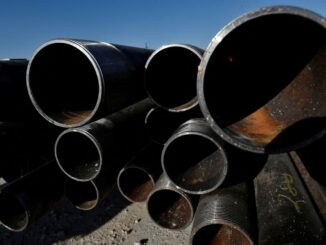
Major oil companies have taken different approaches to the 21st-century vision of searching for Carbon Net-Zero. Exxon, Chevron, Shell, BP, and TotalEnergies have all expressed that they are now “energy” companies and using their profits to become a “greener” energy provider. This is evident by the sheer number of renewable energy projects undertaken by traditional oil and gas companies.
This week TotalEnergies announced that they want to become the energy company of the future, making their new tagline “To Become the Responsible Energy Major.” They would do this by creating massive renewable projects worldwide.
As TotalEnergies is looking to be the leader in renewable energy, Occidental Petroleum is taking a different approach. Occidental has not given up its oil business but instead made developments in carbon capture, utilization, storage (CCUS), and direct air capture (DAC) projects. These clean air technologies can be profitable and help oil companies do their part in the push for a greener world. The carbon credits from DAC and CCUS alone could be worth over a billion and a half dollars. We have seen how well Tesla has done selling its carbon credits, so what is stopping Occidental from doing the same?
Reuters published on March 23 the following.
“Occidental Petroleum (OXY.N) on Wednesday outlined plans to advance its clean energy transition business, including spending between $800 million and $1 billion on a facility to remove carbon dioxide (CO2) from the air.
The proposed facility, the world’s most significant direct air capture (DAC) project, is set to begin construction in the second half of this year in the Permian basin, the largest U.S. oilfield, with a start in 2024.
The U.S. oil and gas producer is aiming to build a profitable business from providing services and technologies that pull CO2 out of the air and burying it underground to advance government and business climate mitigation goals.”
Oxy delivered the first cargo of ‘carbon-neutral crude’ to India in January 2021; a shipment of 2 million barrels of oil with the greenhouse gas associated with the entire lifecycle, from wellhead to combustion, all offset. This is a considerable feat in several ways. First, it is excellent for the environment. Secondly, it can also be profitable as I predict that selling carbon credits will be a massive marketplace in the near future. This management path is about taking the company’s core strengths and enhancing them with new technologies that will add value to its stakeholders and investors, a rare win-win situation.
The Bottom Line
I recently had the opportunity to be on a panel about the future of energy at the Mauldin Economics conference, and Charles McConnell, Executive Director for Carbon Management and Energy Sustainability at the University of Houston representing the Carbon Neutral Coalition, was one of the panelists. Charles brought out some of the critical points of CCUS and the future of energy.
His key vision and topical directions described what is on the Occidental management roadmap. It is not if we should strive for more green energy, it is how we can get there with the least amount of impact on the environment while providing low-cost energy to everyone. That means using all types of energy and letting the markets decide which energy source would best suit their needs.
Looking at an oil company taking the initiative and coming up with a “game-changer” in CCUS and DAC is very exciting. These actions are critical to helping the entire oil and gas industry by helping us be part of the solution.
Source: Kingoperating.com



